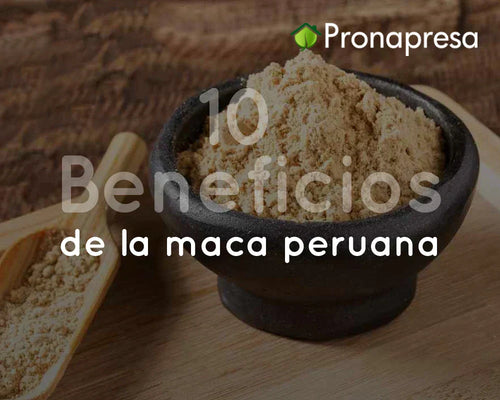
What are diuretics and how do they work?
Diuretics are substances that promote urine production in the kidneys. By increasing the amount of urine produced, diuretics help eliminate excess water and salt from the body. This can be particularly beneficial for people who suffer from fluid retention, hypertension, or kidney problems. Diuretics are also useful for reducing swelling in the legs, feet, and hands, and for relieving the feeling of heaviness in the body.
While synthetic diuretics are commonly prescribed by doctors, many prefer natural options due to their lower risk of side effects and their ability to provide additional benefits, such as antioxidants and essential nutrients.
Benefits of natural diuretics
- Reducing swelling and fluid retention: Natural diuretics help eliminate excess water and salt from the body, which can reduce swelling and the feeling of heaviness, especially in the extremities.
- Blood pressure control: By removing excess sodium and water from the body, diuretics can help regulate blood pressure.
- Weight Loss Support: While not a miracle weight loss solution, natural diuretics can help reduce bloating and water weight, which can be beneficial for those looking to shed a few pounds.
- Detoxification: Diuretics promote the elimination of toxins through urine, which can support kidney and liver function.
- Urinary tract infection relief: By increasing urine production, some natural diuretics can help flush bacteria from the urinary tract, reducing the risk of infections.
Best natural diuretics
1. Horsetail (Equisetum arvense)
Horsetail is a medicinal plant known for its powerful diuretic effect. It has been used since ancient times to treat urinary and kidney problems. Its high content of flavonoids and antioxidants not only helps eliminate excess fluid from the body but also supports bone health and promotes wound healing.
How to use it: Horsetail can be consumed in tea form. To prepare it, boil a teaspoon of dried horsetail in a cup of water for 10 minutes. Drink one or two cups a day.
2. Dandelion (Taraxacum officinale)
Dandelion is another powerful natural diuretic. It contains high levels of potassium, making it a safe option for those who need diuretics, as it helps prevent the loss of this essential mineral that often occurs with synthetic diuretics. Additionally, dandelion is known for its detoxifying and digestive properties.
How to use: Dandelion can be consumed as a tea, extract, or even in salads. For tea, use one teaspoon of dried roots or leaves per cup of water, boil for 10 minutes, and consume up to three times a day.
3. Green Tea (Camellia sinensis)
Green tea is known for its many health benefits, including its diuretic effect. It contains caffeine, a well-known natural diuretic, and antioxidants called catechins, which help fight inflammation and promote weight loss.
How to use: Drink one or two cups of green tea a day to enjoy its diuretic and antioxidant effects.
4. Parsley (Petroselinum crispum)
Parsley is a mild natural diuretic that's also rich in vitamins A and C. It has traditionally been used to treat fluid retention and kidney problems. In addition to its diuretic effect, parsley is also an antioxidant that supports overall health.
How to use: You can add fresh parsley to your meals or prepare it as an infusion. To make an infusion, add two teaspoons of fresh parsley to a cup of hot water, let it steep for 10 minutes, and drink it up to twice a day.
5. Celery (Apium graveolens)
Celery is a highly hydrating food and an effective natural diuretic. It contains a compound called 3-n-butylphthalide, which promotes vascular health and helps eliminate excess fluids. Celery is also low in calories, making it an excellent choice for those looking to lose weight.
How to use it: You can eat raw celery in salads, as a healthy snack, or in juice. To make the juice, blend fresh celery with a little water and drink it daily.
6. Hibiscus (Hibiscus sabdariffa)
Hibiscus is a flower commonly used in tea and is known for its diuretic effect and ability to regulate blood pressure. In addition to being a natural diuretic, hibiscus has antioxidant properties that can help protect the heart and reduce inflammation.
How to use: Prepare an infusion with dried hibiscus flowers. Add a tablespoon to a cup of hot water, let it steep for 10 minutes, and drink up to twice a day.
7. Watermelon (Citrullus lanatus)
Watermelon is a fruit rich in water and potassium, making it an excellent natural diuretic. Its high water content helps maintain hydration while promoting the elimination of toxins and excess fluids. In addition, watermelon contains lycopene, an antioxidant that supports cardiovascular health.
How to use it: Enjoy watermelon as a refreshing snack or in fruit salads.
8. Ginger (Zingiber officinale)
Ginger is known for its anti-inflammatory and digestive properties, but it also acts as a natural diuretic. Ginger helps increase urine production, which facilitates the elimination of toxins and excess fluids from the body.
How to use it: You can consume ginger in tea form, grate it into your meals, or add it to juices and smoothies. For tea, add one teaspoon of freshly grated ginger to a cup of hot water, let it steep for 10 minutes, and consume it twice a day.
9. Blueberries (Vaccinium spp.)
Cranberries are a rich source of antioxidants and have mild diuretic properties. They are especially useful for preventing urinary tract infections, as they help eliminate bacteria and other pathogens from the urinary system.
How to use them: You can consume cranberries fresh, dried, or in juice form. Be sure to choose juices without added sugar to get the maximum benefits.
10. Cucumber (Cucumis sativus)
Cucumber is another highly hydrating food and an effective natural diuretic. It's low in calories and contains silicon and sulfur, which promote the elimination of uric acid from the body, relieving fluid retention.
How to use it: Eat fresh cucumber in salads, as a snack, or in water infusions. For a refreshing infusion, add cucumber slices to a pitcher of water and sip throughout the day.
[product=dtx21]
Eliminate toxins and revitalize your body with our powerful combination of natural ingredients, purifying herbs, and antioxidants.
[/product]
Integrating natural diuretics into your lifestyle
Incorporating natural diuretics into your diet can be simple and enjoyable. Here are some practical ideas on how to do it:
- Diuretic teas: Prepare teas using herbs such as dandelion, horsetail, hibiscus, and ginger. These teas can be a delicious and relaxing way to promote fluid elimination.
- Diuretic-rich salads: Add ingredients like cucumber, celery, and parsley to your salads to boost their diuretic effects while enjoying a light and refreshing meal.
- Smoothies and Juices: Combine fruits and vegetables with diuretic properties, such as watermelon, blueberries, and cucumber, in smoothies or juices. This will not only help you eliminate excess fluid, but will also provide you with a concentrated dose of antioxidants and nutrients.
- Healthy snacks: Opt for fruits like watermelon or blueberries as snacks between meals to stay hydrated and support kidney function.























































